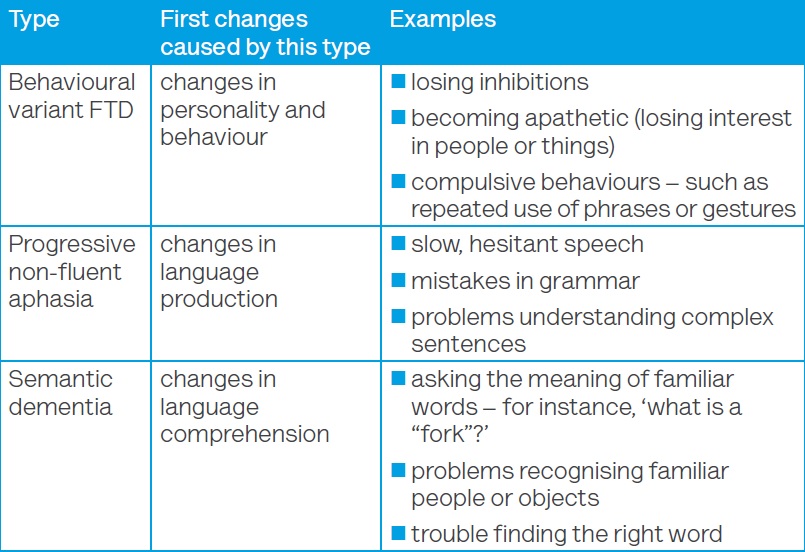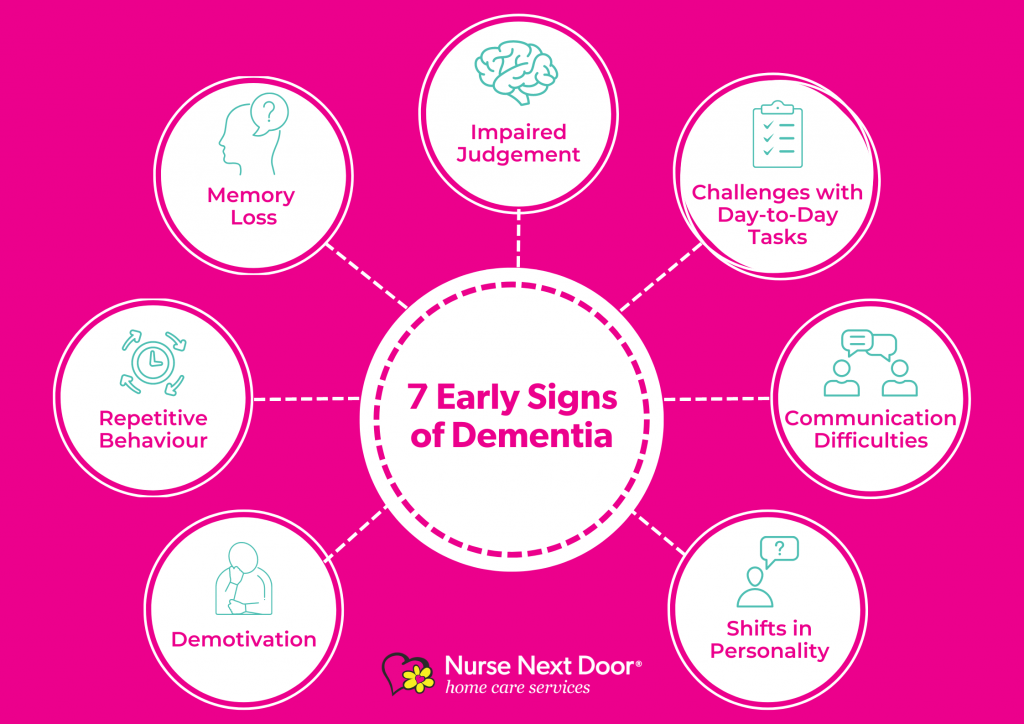Understanding the Effect of Dementia on Daily Life and Caregiving
Dementia influences daily life in profound methods, impacting not just those identified yet also their caretakers. As cognitive decrease progresses, you may observe adjustments in communication and routine that obstacle both events.
The Stages of Mental Deterioration and Their Results on Every Day Life
As you browse the trip of dementia, comprehending its phases can significantly influence just how you manage every day life. Mental deterioration typically progresses with three primary phases: early, center, and late. In the very early phase, you might notice occasional memory lapses or problem discovering the ideal words. This can bring about aggravation, but acknowledging these indications early assists you adapt your routine and seek support.
During the middle stage, you'll experience more noticeable cognitive decrease. Daily jobs may end up being difficult, and preserving your self-reliance might need adjustments. Utilizing suggestions and streamlining your setting can assist.
In the late stage, individuals often require substantial help with everyday activities. Planning for care comes to be crucial, concentrating on comfort and quality of life. By understanding these phases, you're much better geared up to respond proactively, guaranteeing you or your liked one can navigate the obstacles with self-respect and grace.

Adjustments in Interaction and Social Communication
Just how do changes in communication affect your daily interactions as dementia advances? As dementia developments, you may observe that basic discussions end up being difficult. Words may escape you, or you may struggle to discover the appropriate expressions. This can cause stress for both you and your liked ones. Nonverbal cues, like gestures or faces, become increasingly essential.
You may find it easier to attach with these means instead of counting entirely on spoken language. Paying attention abilities can likewise change; you could discover it harder to bear in mind or comply with conversations what was simply said (Frontotemporal Dementia). This can lead to misconceptions or feelings of seclusion
Urging persistence and developing a supportive setting can help. Taking part in tasks that promote link, like music or art, can improve social communications. Remember, keeping relationships is still feasible; it's practically adjusting to new means of communicating.
Influence On Daily Routines and Activities
While maneuvering day-to-day routines, you'll likely observe that jobs you once completed easily become much more tough as dementia proceeds. Simple activities like food preparation, clothing, or even showering might require even more effort and time. You might find on your own neglecting action in familiar routines or struggling to recall where you positioned things. This can result in disappointment not simply for you, but also for those around you.
Preparation your day can really feel frustrating, making it more challenging to adhere to a timetable. You might need reminders for consultations or to take drugs. Adjusting your atmosphere can help; for example, labeling things or making use of lists can simplify tasks. Taking part in recurring, organized activities can also provide convenience and a feeling of achievement. Remember, it's okay to request for assistance. Surrounding on your own with encouraging good friends or household can make managing these changes a little bit much easier.
Psychological and Behavior Difficulties
Steering via day-to-day regimens can cause not simply functional challenges, however also psychological and behavioral ones. You might see modifications in state of mind, such as enhanced anxiety or stress, which can come from complication or difficulty in finishing tasks. As you browse these moments, it is crucial to identify that your liked one might express their feelings via behaviors like frustration or withdrawal.
These emotional actions can be uncertain and may develop without caution, leaving you both feeling overwhelmed. You could find that familiar settings or regimens can help in reducing anxiety, however preserving perseverance becomes considerable. It is essential to verify their sensations, also if you do not fully comprehend them.
The Function of Caregivers in Sustaining People With Mental Deterioration
As a caregiver, you play an important function in supplying psychological assistance for people with dementia. Establishing daily care routines can produce a sense of security and convenience, aiding to alleviate their anxiousness. By understanding their needs and using effective techniques, you can considerably improve their top quality of life.
Psychological Assistance Approaches
When caring for a person with dementia, understanding the emotional landscape is essential for giving reliable assistance. Basic gestures, like holding their hand or maintaining eye call, can produce a feeling of safety. Ultimately, do not fail to remember to take treatment of your own psychological requirements; looking for support for yourself can improve your ability to care for them.
Daily Treatment Routines
Developing everyday care routines is crucial for offering security and comfort to people with dementia, as these regimens can help in reducing confusion and anxiousness. You can start by detailing a consistent routine for dishes, activities, and remainder. This predictability helps your liked one really feel more safe and engaged.
Incorporate familiar jobs, go to this site like folding washing or watering plants, which can stimulate positive memories and cultivate a feeling of achievement. Use visual hints, such as schedules or checklists, to assist them via the day.
Be flexible, though; adapt routines as needed based on their state of mind or power degrees. Vascular Dementia. Remember, your patience and understanding are important in navigating their transforming demands, guaranteeing they feel supported and valued throughout their day-to-day live
Producing a Safe and Comfortable Living Atmosphere
Developing a secure and comfy living environment is necessary for people with mental deterioration. You'll desire to make home safety and security alterations that lower threats and assure knowledge to provide a feeling of convenience. By concentrating on these facets, you can aid develop a room that sustains both security and wellness.
Home Security Adjustments
As you navigate the difficulties of dementia, making home security adjustments can substantially boost convenience and protection. Beginning by getting rid of tripping dangers like rugs and clutter, guaranteeing sidewalks are clear. Mount grab bars in shower rooms and non-slip floor coverings in the shower to avoid falls. Consider making use of brighter illumination and night lights to improve presence, particularly during nighttime. Label vital locations, such as the shower room and kitchen, with clear signs to aid with positioning. Secure any kind of sharp items or harmful materials unreachable. Additionally, assess your home's alarm systems and locks to confirm they're straightforward and supply peace of mind. These modifications not just promote safety and security however also motivate self-reliance, allowing your enjoyed one to feel even more at simplicity in their environment.
Comfort and Familiarity
After making sure a risk-free atmosphere with needed modifications, promoting convenience and knowledge is essential for people with mental deterioration. Keep a regular regular to aid them really feel grounded and minimize stress and anxiety. Engaging in familiar activities, such as paying attention to songs or gardening, can improve their sense of belonging, making their living environment a real refuge.
Methods for Efficient Caregiving and Support
While maneuvering the obstacles of mental deterioration care can feel overwhelming, applying reliable techniques can significantly improve both the caretaker's and the client's daily experience. Beginning by developing a routine; predictability helps in reducing anxiety for both you and your enjoyed one. Use clear, simple interaction-- straight inquiries and brief sentences can stop confusion.

Don't neglect to care for yourself; routine breaks and get in touch with support system. Sharing experiences with others in comparable situations can supply useful insights and emotional relief.
Lastly, continue to be person and adaptable. Mental deterioration can bring uncertain adjustments, so adapting your technique is crucial. By employing these methods, you can foster a more favorable setting that benefits both you and your liked one.
Often Asked Concerns

What Are the Different Kinds of Dementia?
You'll locate several types of dementia, including Alzheimer's, vascular mental deterioration, Lewy body mental deterioration, and frontotemporal mental deterioration. Each type affects memory and cognitive function differently, so recognizing the distinctions is important for correct diagnosis and care.
Exactly How Can I Assist A Person With Early-Stage Mental Deterioration?
You can aid a person with early-stage mental deterioration by holding your horses, providing support, and urging them to take part in tasks they enjoy. Keeping routines regular and keeping open communication can also make a substantial difference in their everyday life.
Are There Financial Resources Available for Dementia Care?
Yes, there are economic resources available for mental deterioration treatment. You can check out entitlement program programs, not-for-profit companies, and insurance coverage choices. It's also smart to seek advice from neighborhood companies for certain sources customized to your circumstance.
What Lawful Factors To Consider Should Caregivers Recognize?
As a caregiver, you ought to think about power of lawyer, healthcare proxies, and guardianship laws. It's crucial to read what he said comprehend the legal rights and responsibilities you hold, ensuring your enjoyed one gets appropriate treatment and defense.
How Can I Cope With Caretaker Stress?
You can deal with caregiver stress and anxiety by prioritizing self-care, seeking support from teams or friends, setting reasonable expectations, taking breaks, and exercising leisure methods. Bear in mind, your health matters equally as long as the individual you're looking after.
Recognizing the Impact of Dementia on Daily Life and Caregiving.
As you navigate the journey of dementia, understanding its phases can noticeably affect how you manage everyday life.While steering day-to-day regimens, you'll likely observe that tasks you when completed effortlessly come to be a lot more challenging as dementia proceeds.Developing Continued daily treatment routines is important for giving security and comfort to people with mental deterioration, as these routines can aid lower confusion and anxiety.While navigating the obstacles of dementia treatment can feel frustrating, applying effective strategies can significantly improve both the caregiver's and the client's daily experience.